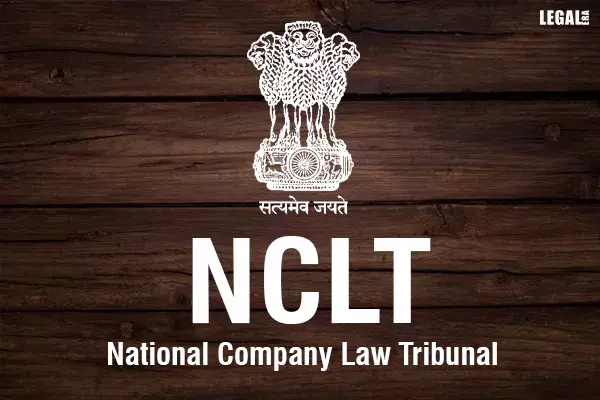NCLT: Section 30(4) of IBC Does Not Impose Mandate on COC to Distribute Payments to Creditors Based on Value of Security
The National Company Law Tribunal, (NCLT), Hyderabad bench has observed that Section 30(4) of Insolvency Bankruptcy Code;

NCLT: Section 30(4) of IBC Does Not Impose Mandate on COC to Distribute Payments to Creditors Based on Value of Security
The National Company Law Tribunal, (NCLT), Hyderabad bench has observed that Section 30(4) of Insolvency Bankruptcy Code, 2016 (IBC), with respect to considering the security interest, is directory and not mandatory and that apart, the said provision is only an enabling provision and does not impose any mandate on the CoC to distribute payments to creditors based on the value of security held by them.
In the present case, M/s. Galada Power and Telecommunications Ltd. (“Corporate Debtor”) was admitted into Corporate Insolvency Resolution Process (“CIRP”). Subsequently, several resolution applicants submitted Resolu tion Plans for the Corporate Debtor.
In the Joint Lenders Meeting (JLM) dated 19 August, 2021 & 27, August, 2021 fixing the inter se, sharing ratio for Secured Financial Creditors as 88:12 with 88% being shared between the Financial Creditors who were 1st Charge holders against the fixed assets of the Corporate Debtor (i.e. M/s. SASF and M/s. Edelweiss Arc) and 12% between the second charge holders against the fixed assets of the Corporate Debtors (i.e. Applicant- Canara Bank and UTI Mutual Fund) were objected to by the Applicant before the JLM and also in the 24th Committee of Creditors (CoC) Meeting dated 31 August, 2021.
Canara Bank is a Financial Creditor of the Corporate Debtor which held 28.63% voting share in CoC; has first charge over current assets and second charge over fixed assets of the Corporate Debtor.
The Financial Creditor while objecting to the decided ratio of 88:12, contended that inter se sharing of the resolution fund should be in ratio of voting share of the CoC members, in order to ensure equitable treatment amongst same class of financial creditors. Further, the Section 30(4) and 53(1) of IBC also imply that Secured Creditors are to be treated equitably. However, the CoC declined to interfere in the JLM’s decision.
Thus, the Financial Creditor filed an application before the NCLT, seeking direction to the Resolution Applicant to provide 28.63% amount to be paid to the Financial Creditor (in accordance to its voting shares), instead of 12% of the resolution fund.
The issue that came up for consideration before the division bench comprising of Dr. N.V. Rama Krishna Badarinath (Judicial Member) and Satya Ranjan Prasad (Technical Member), that whether the COC’s decision regarding payment to different classes or sub-classes of creditors under the Resolution Plan can be interfered with, especially on the ground of alleged discrimination among the same class of financial creditors?
In this regard, the bench observed that the language used in Section 30(4) of IBC with respect to considering the security interest, is “may” and is therefore directory and not mandatory. The CoC is under no compulsion to distribute payments to creditors based on the value of security held by them.
The NCLT held, “Section 30(4) of the IB Code only says that the COC may take into account the order of priority amongst creditors as laid down in sub-section (1) of Section 53 of the IB Code, including priority and value of security interest of secured creditors, while approving the resolution plan, so much so, the argument that, as the COC failed to take into the account the pre-CIRP preferential financial bargains made by the Applicants with the Corporate Debtor, as such, the impugned decisions are liable to be set aside, is untenable.”
The NCLT opined that a dissenting secured creditor cannot seek a higher amount to be paid to them, on the basis of the value of their security interest by pleading dissatisfaction. The decision pertaining to priority of payments to different classes of creditors lies in the commercial wisdom of the CoC.
Accordingly, the application was dismissed.

